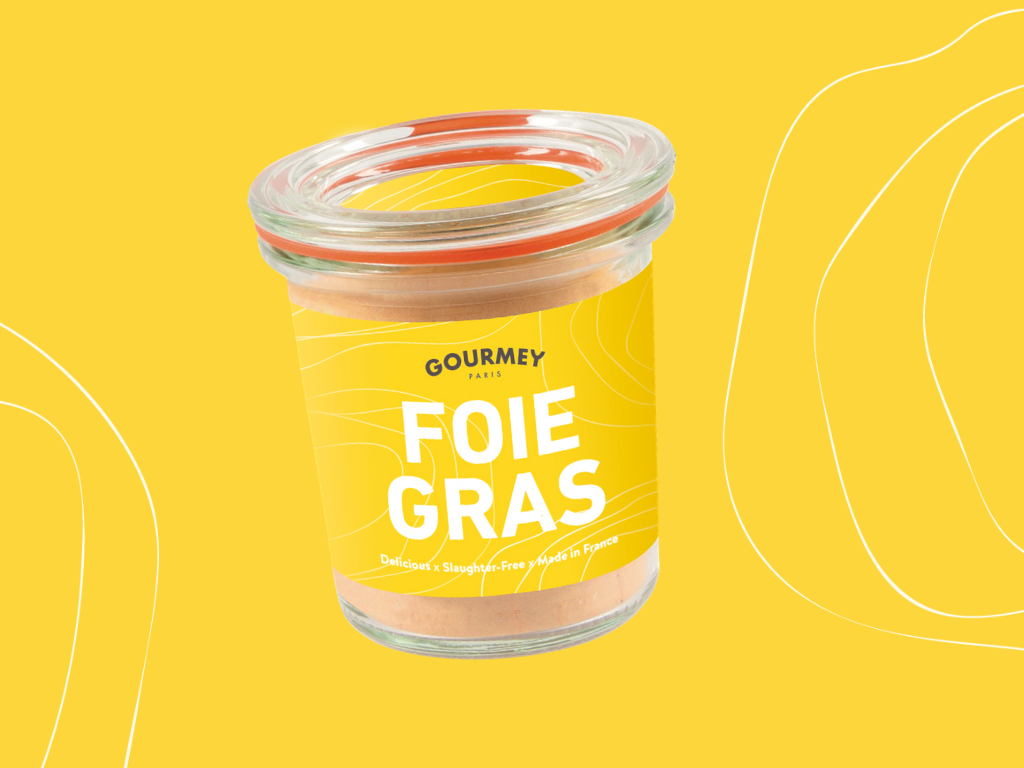3 Mins Read
Founded just this year in Paris and currently participating in Singapore-based foodtech accelerator Big Idea Ventures, GOURMEY is the first French cultivated meat startup and the latest to break the food tech industry space with their lab-grown foie gras. Not only are they using the innovative biotechnology to make the popular French delicacy more ethical and sustainable, the startup is also hoping that they can create different duck products as a solution for duck meat-loving Asia too.
Started in 2019 by three friends Nicolas Morin-Forest, Jérôme Caron, Antoine Davydoff and Gemma Lyons, GOURMEY is a Paris-based startup using cellular agriculture to cultivate foie gras, the fatty liver of a duck or goose, which will eliminate the animal cruelty and environmental footprint of the French delicacy. Traditionally, foie gras is produced via a cruel process, out of a liver of a duck or goose that has been force-fed or overfed. Beyond ethical welfare concerns, conventional animal agriculture is unsustainable – it generates a hefty carbon footprint, and causes contamination of our water, soil and air pollution. GOURMEY, with their cell-based foie gras, hopes to fight both of these challenges without disrupting the cultural significance of the French culinary tradition, which is enjoyed all over the world.
GOURMEY creates their cell-based foie gras using a few cells extracted from a freshly laid duck egg. Just these few cells, according to the company, is enough to reproduce the world’s foie gras demand for years, which rids the need for eggs for extraction after the initial batch has been selected. These cells gets placed in a carefully controlled cultivator that gives the cells its ideal temperature, nutrients and space to grow into a liver meat that has the same taste, texture and composition. Cooks can then cook up foie gras using GOURMEY’s harvested cell-based liver meat with salt, freshly ground pepper and a dash of Armagnac, resulting in a final product that offers people the same experience using 80% less water, land surface and carbon dioxide emissions and 45% less energy compared to conventional animal farming, and requires absolutely no antibiotics, and no animal suffering involved.
READ: Lab-Grown Food To Drive Collapse Of Beef & Dairy Industry By 2030 Says New Report
The product will ease the unmet demand for an alternative, less cruel foie gras in the world as well. In October, New York banned foie gras over welfare concerns, joining the list of 17 other countries that have already banned the production of the fatty duck or goose liver. According to co-founder and CEO of GOURMEY, Nicolas Morin-Forest, three-quarters of French consumers are also uncomfortable with the force feeding involved in foie gras production. Speaking to Green Queen, the startup share that they hope their cell-based fine food brand, which specifically caters to French gastronomical tastes, will gain the support of the conservative dining community in France.
At the moment, the startup is supported by a number of French public institutions, grants and subsidies as well as funding from impact VC Big Idea Ventures. While they are still in the development process of reinventing a humane and sustainable version of the controversial French delicacy, they hope to release the product in 2023 or 2024. Beyond foie gras, GOURMEY wants to launch an entire platform around duck cells, to cultivate everything from duck meat to duck burgers in their lab to drive a more sustainable global food system.
READ: By 2040, Majority Of Meat Will Come From Plants & Labs, With Asia Driving Demand
With these plans, GOURMEY is eyeing the duck-meat loving Asia, where they can make the biggest positive impact as demand for meat in the region continues to grow. A few other food tech startups are working on the ground in Asia, such as Singapore-based Shiok Meats who are harvesting lab-grown crustacean meats and Hong Kong’s Avant Meats who are developing cell-based fish maw to cater to regional tastes and fight issues of traceability in the prized market for seafood. Cultivated meat is likely to fare well in Asia, where consumers have showcased a greater interest than their American counterparts, according to a study published in Frontiers.
Lead image courtesy of GOURMEY.




